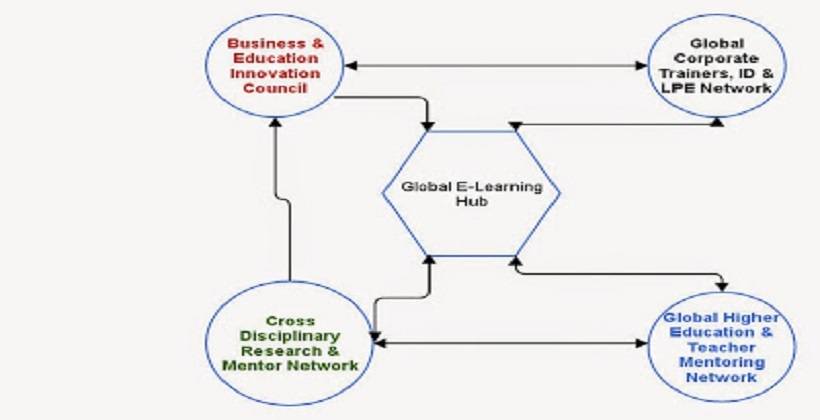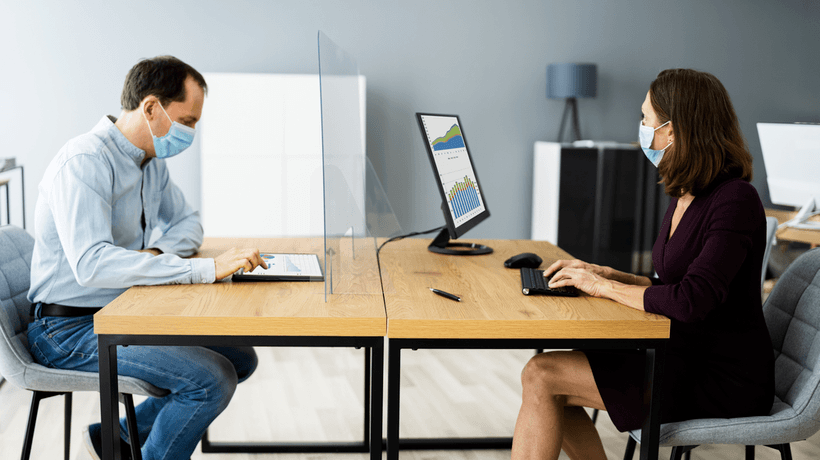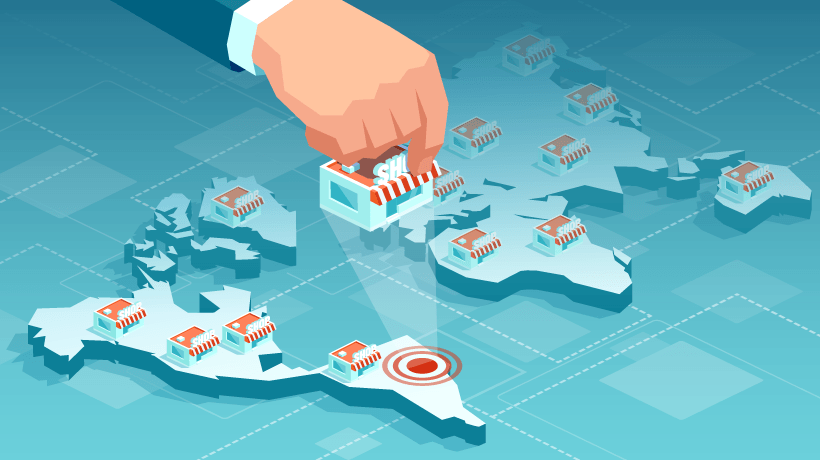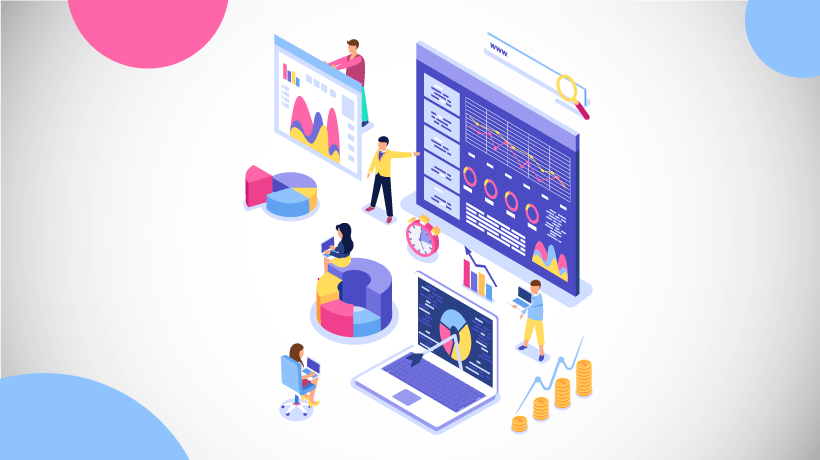Learning From The Past But Planning For The Future
Subject Matter Experts (SMEs) have been a fixture within the network of Instructional Designers for decades. Subject Matter Experts are the people to go to when Instructional Designers are tasked with creating learning experiences for employees that will result in higher ROI and increasingly improved performance metrics for the organization as a whole. Seems simple enough, but in the 21st century under the present conditions, the question becomes: Is it still business as usual, and if not, what has changed?
In an article titled "How to Become a Subject Matter Expert in Your Field" by Indeed.com (Feb. 22, 2021), the authors point out in reference to preparing to be an SME, that (and I quote):
Look for opportunities to increase your skills within the subject matter at work or in the manner of volunteer work so that you can achieve hands-on experience within the subject. It's a good idea to pursue only topics that really interest you since you'll need to dedicate a lot of time to learning.
The authors are making an assumption here that is based upon the way things have been, not necessarily as they are right now.
One thing we now recognize is that our societies have been exposed to a perfect storm which has impacted businesses on a global scale. I am not referring to the COVID-19 pandemic. That perfect storm is the coming together of an exponential increase in knowledge, technology coupled with a re-visioning of what change management should look like under these conditions. What the COVID-19 pandemic has done is that it changed the landscape from working within the brick-and-mortar "office" to a complex networking that needs to take place in cyberspace almost 100% of the time. This shift presents us with a number of dilemmas:
- Can any person really claim to be a Subject Matter Expert in the truest sense of the word? With the exponential rate at which knowledge in all disciplines is increasing, can SMEs honestly say that they are up to date in their area of expertise?
- In the past, SMEs relied on the idea that knowledge followed a "silo" approach when it came to expertise. However, can knowledge still be seen in this way or have the problems of the 21st century now evolved into a cross-disciplinary form where one person's subject matter expertise is not enough to solve the problem?
- With the continued rise of AI, Big Data, and predictive analytics, can SMEs do the job as well or better than an intelligent digital assistant using SMART technology?
- Given that business is to be conducted on the web more intensively due to the pandemic, what does that mean when it comes to protecting our dialogues, research, and products from exploits by people who are in the business of stealing intellectual assets and profiting by selling these assets to the highest bidder, who may be a business competitor or even a state seeking to advance its own agenda in the global environment?
 Photo by Spencer Selover from Pexels
Photo by Spencer Selover from Pexels
Common responses to this last question are:
- We have our backups in the cloud, which is safe. Really? Have you or your IT department examined what kinds of tools are available to breach data stored in the cloud?
- That's not my area of expertise. It is the job of the IT department. Really? Whose job is it to explain to investors, customers, and stockholders when a serious breach with loss of data occurs?
The answer to these questions should not be in the hands of "pass the buck" decision-makers since ultimately it will affect how Instructional Designers are able to do their job effectively in conjunction with SMEs.
SMEs: Evolution Or Revolution?
The answer to the above question hinges on 2 ideas that business organizations need to consider:
- When considering the future roles of SMEs, the importance of the nature of "best practices" becomes important. Are the best practices of SMEs fixed or are they flexible enough to adapt to the changing realities and business needs that have been brought on by the "perfect storm" mentioned earlier with the added intensification of that storm by the global pandemic? It is interesting how telling the statement of best practices is for the outlook on the future of an organization.
- Due to the intricate link that SMEs will have with Instructional Designers within an organization, how such a service deals with change is at the heart of what the future will look like for the SMEs and the organization.
The following recent YouTube video by Birchwood Learning titled "Working with Subject Matter Experts" (below) illustrates some interesting premises and assumptions about the future of the role of SMEs. Pay special attention to the detailed roles and best practices.
It is reassuring that based on this video, SMEs are realizing that because of the cross-discipline nature of our growing knowledge reservoirs, that one SME can not perform all functions in order to provide what future Instructional Designers will need. The question that arises is: Due to changes brought about by the "perfect storm" and COVID-19, will the roles and best practices of SMEs change through a change process of "evolution" or will "revolution" be required?
The answer to this question has to hinge on whether or not SMEs are taking into account the changes brought on by a revolution in technology and learning science which gives an accurate picture of the way employees learn in the 21st century. Do SMEs have the plan in place to allow evolution in their roles and best practices to meet the new demands or will an actual revolution be needed to overcome what may be termed organizational inertia that says, "Despite the tsunami of change occurring around us, we will stay the course and hope for the best?"
Consider the insights provided in the following YouTube video by Knowledge Fruit titled: "What is the role of Subject Matter Experts in the Future?" (below).
https://www.youtube.com/watch?v=w1Q5uMYyP90&list=FLf7Z3OYDqpvixOcKxhVjibA&index=2
A Needed Paradigm Shift: Global SME Networks And AI Mentoring Assistants
One realization that SMEs need to come to is that they are not a fountain of information in their own area of expertise anymore; and, because keeping up with exponential growth in cross-discipline information is not for mere mortals anymore, a re-visioning is needed. There needs to be a change in the way that they assemble and channel information related to the growing needs of Instructional Designers. This means that their reach into the areas of knowledge needs to be global in nature but capitalizing on the advances of technology.
This means capitalizing on the use of online networks that join SME expertise with their data banks together into a symbiotic relationship. It means the development of a global portal that would act as a hub. It means making use of AI and Big Data to not only predict the needs of Instructional Designers but to automate and support the processes involved in the relationship between Instructional Designers and a global network of SMEs. For example, AI could be used to set up a mentoring system as an element of supporting Instructional Designers within business organizations. The training regimen of the past needs to change so that it reflects the reality that in the 21st century and in a post-pandemic world, learning really needs to be lifelong, especially in the life of the business organization.
In 2016, I suggested a vision of what this might look like but at the time, the technology dealing with AI, Big Data, and predictive analytics wasn't there yet. In this vision, the heart was represented by a Global eLearning Portal or hub as shown below.

In these times of global pandemic, where business needs to be conducted more and more online, how we shape the learning and upskilling of employees needs to reflect this new reality so business organizations may grow, see growth in market share on a global scale, and see the performance of employees render a higher ROI than ever before. The relationship of SMEs with Instructional Designers is key to this.
Evolution or revolution? More on this in the next article...









